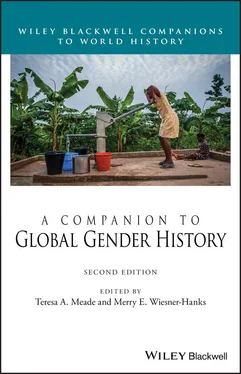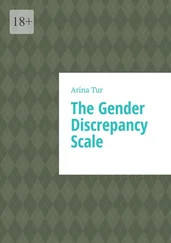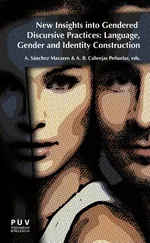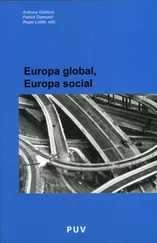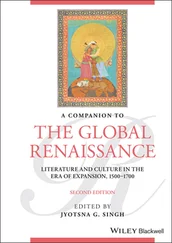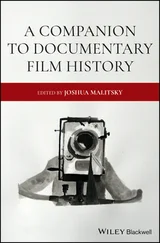All rights reserved. No part of this publication may be reproduced, stored in a retrieval system, or transmitted, in any form or by any means, electronic, mechanical, photocopying, recording or otherwise, except as permitted by law. Advice on how to obtain permission to reuse material from this title is available at http://www.wiley.com/go/permissions.
The right of Teresa A. Meade and Merry E. Wiesner‐Hanks to be identified as the authors of the editorial material in this work has been asserted in accordance with law.
Registered Offices John Wiley & Sons, Inc., 111 River Street, Hoboken, NJ 07030, USA John Wiley & Sons Ltd, The Atrium, Southern Gate, Chichester, West Sussex, PO19 8SQ, UK
Editorial Office 111 River Street, Hoboken, NJ 07030, USA
For details of our global editorial offices, customer services, and more information about Wiley products visit us at www.wiley.com.
Wiley also publishes its books in a variety of electronic formats and by print‐on‐demand. Some content that appears in standard print versions of this book may not be available in other formats.
Limit of Liability/Disclaimer of Warranty While the publisher and authors have used their best efforts in preparing this work, they make no representations or warranties with respect to the accuracy or completeness of the contents of this work and specifically disclaim all warranties, including without limitation any implied warranties of merchantability or fitness for a particular purpose. No warranty may be created or extended by sales representatives, written sales materials or promotional statements for this work. The fact that an organization, website, or product is referred to in this work as a citation and/or potential source of further information does not mean that the publisher and authors endorse the information or services the organization, website, or product may provide or recommendations it may make. This work is sold with the understanding that the publisher is not engaged in rendering professional services. The advice and strategies contained herein may not be suitable for your situation. You should consult with a specialist where appropriate. Further, readers should be aware that websites listed in this work may have changed or disappeared between when this work was written and when it is read. Neither the publisher nor authors shall be liable for any loss of profit or any other commercial damages, including but not limited to special, incidental, consequential, or other damages.
Library of Congress Cataloging‐in‐Publication Data
Names: Meade, Teresa A., 1948– editor. | Wiesner‐Hanks, Merry E., 1952– editor.
Title: A companion to global gender history / edited by Teresa A. Meade and Merry E. Wiesner‐Hanks.
Description: Second Edition. | Hoboken : Wiley, 2021. | Series: Blackwell companions to world history | Revised edition of A companion to gender history, 2004. | Includes bibliographical references and index.
Identifiers: LCCN 2020029247 (print) | LCCN 2020029248 (ebook) | ISBN 9781119535805 (hardback) | ISBN 9781119535782 (adobe pdf) | ISBN 9781119535829 (epub)
Subjects: LCSH: Sex role–History. | Gender identity–History. | Sex role–Cross‐cultural studies. | Gender identity–Cross‐cultural studies. | Feminist theory.
Classification: LCC HQ1075 .C655 2020 (print) | LCC HQ1075 (ebook) | DDC 305.3–dc23
LC record available at https://lccn.loc.gov/2020029247LC ebook record available at https://lccn.loc.gov/2020029248
Cover Design: Wiley
Cover Image: Photograph by Nancy Borowick
Teresa A. Meadeis Florence B. Sherwood Professor of History and Culture, Union College, Schenectady, New York. She has focused on integrating issues of gender and ethnicity into the Latin American historical narrative as a teacher of undergraduate students and author of A History of Modern Latin America, 1800 to the Present (2009, 2016) and A Brief History of Brazil (2002, 2009). In addition to authoring and editing other books and journals, she is a member of the Editorial Collective of Radical History Review and former president of the Board of Trustees of The Journal of Women’s History .
Merry E. Wiesner‐Hanksis Distinguished Professor of History and Women’s and Gender Studies Emerita at the University of Wisconsin‐Milwaukee. She is the long‐time senior editor of the Sixteenth Century Journal , former editor of the Journal of Global History , and the editor‐in‐chief of the seven‐volume Cambridge World History . She is the author or editor of thirty books and many articles that have appeared in English, German, French, Italian, Spanish, Portuguese, Greek, Chinese, Turkish, and Korean, and are widely used in teaching around the world, including Gender in History: Global Perspectives and Women and Gender in Early Modern Europe . Her research has been supported by grants from the Fulbright and Guggenheim Foundations, among others.
Patricia Acerbiteaches history at George Washington University and through the Clemente Course in the Humanities at Bard College. She is the author of Street Occupations: Urban Vending in Rio de Janeiro, 1850–1925 (2017) and a number of journal articles and book chapters.
Susan D. Amussenis Professor of History at the University of California, Merced. She is the author of An Ordered Society: Gender and Class in Early Modern England (1988); Caribbean Exchanges: Slavery and the Transformation of English Society (2007); and (with David Underdown) Gender, Culture and Politics in England, 1560–1640: Turning the World Upside Down (2017).
Barbara Watson Andayais Professor in the Asian Studies Program at the University of Hawai’i. A historian by training, her most recent books are The Flaming Womb: Repositioning Women in Southeast Asian History, 1500–1800 (2006) and A History of Early Modern Southeast Asia (2016). She is General Editor of the new Cambridge History of Southeast Asia and is working on a book on gender in sexuality in Southeast Asia from early times to the present.
Nupur Chaudhuriis Professor of History at Texas Southern University. She is the author of many articles, and the co‐editor of a number of books, including: with Margaret Strobel, Western Women and Imperialism: Complicity and Resistance (1992), with Ruth Roach Pierson, Nation, Empire, Colony: Critical Categories of Gender and Race Analysis (1998), with Eileen Boris, Voices of Women Historians: Personal, Professional and Political (1999), and with Sherry Katz and Mary Elizabeth Perry, Contesting Archives: Finding Women in the Sources (2010).
Marcia‐Anne Dobresis Lecturer in Anthropology at the University of Southern Maine. She is the author of Technology and Social Agency (2000) and has co‐edited Agency in Archaeology (2000) and The Social Dynamics of Technology (1999). She is currently investigating the social technology of Ice Age cave art in the French Pyrénées (c. 14,000 years ago) to understand its role in facilitating the negotiation of gender and social agency.
Laura Levine Fraderis Professor of History at Northeastern University, and was the holder of the first Gender Equality Chair at the Université de Sorbonne Paris Cité (USCP). Her publications include Gender and Class in Modern Europe , co‐edited with Sonya O. Rose, (1996), and Breadwinners and Citizens: Gender in the Making of the French Social Model (2008).
Patricia Grimshawis Professor Emerita in the School of Historical and Philosophical Studies at the University of Melbourne where she taught women’s and gender history from the 1980s. Her publications include Women’s Suffrage in New Zealand (1972), Paths of Duty: American Mission Women in Nineteenth Century Hawai’i (1989), Equal Subjects, Unequal Citizens: Indigenous Peoples in Britain’s Settler Colonies (2003), and, most recently, White Women, Aboriginal Missions and Australian Settler Governments: Maternal Contradictions (2019).
Читать дальше
